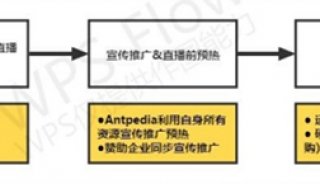直播预告|佛蒙特大学教授讲述如何为机器人赋以智能
原文地址:http://news.sciencenet.cn/htmlnews/2024/3/518241.shtm

直播时间:2024年3月1日(周五)20:00-21:30
直播平台:

科学网APP
(科学网微博直播间链接)

科学网微博

科学网视频号
新一季 iCANX Talks即将开幕!北京时间2024年3月1日晚八点,iCANX Talks 第175期邀请佛蒙特大学的Joshua Bongard教授进行分享!我们诚挚地邀请您加入这场知识的盛宴,一同探索机器人智能的未来。
【嘉宾介绍】

Joshua Bongard
佛蒙特大学
Embodying intelligence in rigid, soft,and biological robots
【Abstract】
There are two paths our society is pursuing in the quest to create intelligent machines: non-embodied AI and embodied AI. Recent advances in non-embodied AI include ChatGPT and Stable Diffusion. These AI systems do not have a body with which to learn about the world. Because of this, such systems struggle to achieve common sense, and grow beyond the data they were trained on. Researchers in the field of embodied AI believe that machines must have a body with which to push against the world, and observe how the world pushes back. These experiences provide the fertile soil in which true intelligence can grow. In this talk, I will demonstrate how the body can help machines to think better, by exploring rigid, then soft, then biological robots. Along the way we will see how machines are becoming more capable of physical flexibility – the ability to change their bodies – and how this enables them to achieve mental flexibility – the ability to change their minds. I will conclude by describing the likely future for such embodied intelligences.
我们的社会在追求创造智能机器的过程中有两条路:非实体人工智能和实体人工智能。非实体人工智能的最新进展包括 ChatGPT 和稳定扩散。这些人工智能系统没有可以用来了解世界的躯体。正因为如此,这类系统很难获得常识,其发展也无法超越它们所训练的数据。具身人工智能领域的研究人员认为,机器必须有一个身体来推动世界,并观察世界是如何反击的。这些经历为真正智能的成长提供了肥沃的土壤。在本讲座中,Joshua Bongard教授将通过对刚性机器人、柔性机器人和生物机器人的探索,展示身体如何帮助机器更好地思考。在这个过程中,我们将看到机器是如何变得越来越具有身体灵活性(即改变身体的能力),以及这又是如何使它们实现思维灵活性(即改变思维的能力)的。最后,将讨论具身智能体的可能未来。
【BIOGRAPHY】
Joshua Bongard is the Veinott Professor of Computer Science at the University of Vermont, where he runs the Morphology, Evolution & Cognition Laboratory. His lab creates AI, robots, and computer designed organisms (so-called “xenobots”). He received a research award from former president Barack Obama at a ceremony at the White House in 2011, appeared in an episode of Morgan Freeman’s science program ‘Through the Wormhole’, was named as one of MIT Technology Review’s Top 35 Under 35, and received the Cozzarelli Prize from the National Academy of Sciences. He has appeared on CNN and his work has been covered by The New York Times, The New Yorker, and the BBC. He is also the author of the book “How The Body Shapes the Way We Think” and runs the Ludobots online course through reddit.com.




























































